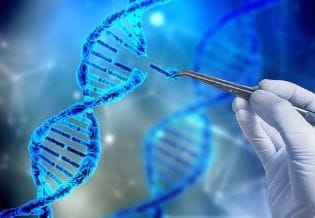Call for Papers
Contribute your most impactful discoveries in cancer genetics and biomarkers to the Journal of Cancer Genetics and Biomarkers (JCGB).
Advance Precision Oncology with Your Research
JCGB invites original research, reviews, and translational studies that push the boundaries of cancer genomics, biomarker discovery, and personalised medicine. Our editorial team is actively curating content for 2025 special issues, thematic clusters, and spotlight series aligned with the priorities below.
Spatial and Single-Cell Oncology
Studies decoding tumour ecosystems using spatial omics, single-cell profiling, and multimodal imaging to inform therapeutic combinations.
Liquid Biopsy & Minimal Residual Disease
Innovations in ctDNA, cfRNA, exosomes, or circulating tumour cells that enable non-invasive monitoring across solid and hematologic cancers.
AI-Augmented Diagnostics
Explainable machine learning models for genomics, pathology, radiomics, or real-world data that improve risk stratification and care pathways.
Global Genomics & Health Equity
Research addressing underrepresented populations, community-driven genomic programs, and strategies for equitable precision medicine deployment.
- Original research (wet lab, computational, clinical)
- Translational trials and correlative science
- Reviews, meta-analyses, and perspectives
- Methods, data resources, and benchmark datasets
- Case series highlighting biomarker-driven decision-making
- Policy analyses on regulation, ethics, and implementation
| Quarter | Submission Window | Focus Areas | Waiver Deadline |
|---|---|---|---|
| Q1 2025 | 1 Jan – 31 Mar | Spatial multi-omics, immunogenomics, and tumour evolution | 15 Feb 2025 (up to 25% waiver) |
| Q2 2025 | 1 Apr – 30 Jun | Liquid biopsy for MRD, real-world evidence, AI-guided diagnostics | 15 May 2025 (up to 20% waiver) |
| Q3 2025 | 1 Jul – 30 Sep | Global genomics equity, paediatric precision medicine, synthetic lethality | 20 Aug 2025 (up to 25% waiver for LMIC authors) |
| Q4 2025 | 1 Oct – 31 Dec | Next-generation immunotherapies, digital twins, bioinformatics pipelines | 15 Nov 2025 (up to 20% waiver) |
- Review the Instructions for Author and prepare your manuscript.
- Submit via the ManuscriptZone portal or quick submission form.
- Select a special issue or thematic focus (if applicable) in the submission form and cover letter.
- Provide conflict of interest disclosures, funding information, data availability statements, and reporting guideline checklists.
Global Visibility
Open access distribution, indexing in major scholarly databases, and coordinated publicity via newsletters, social media, and conference partnerships.
Impact Analytics
Authors receive detailed post-publication metrics tracking downloads, citations, policy mentions, and geographical reach.
Community Engagement
Participate in JCGB webinars, panel discussions, and reviewer mentorship programs that extend the influence of your research.
Data Stewardship Support
Guidance on repository selection, metadata standards, and licensing to ensure compliance and reuse of your datasets.
Spatial Multi-Omics in Tumor Ecosystems
Guest Editors: Dr. Hana Li, Dr. Ethan Brooks, Dr. Laila Ahmed. Submission window: Sep 2024 – Jan 2025. Emphasis on spatial transcriptomics, proteomics, and imaging mass cytometry.
Liquid Biopsy for Minimal Residual Disease Surveillance
Guest Editors: Prof. Giulia Romano, Dr. Samuel Peters, Dr. Nshuti Kamara. Submission window: Oct 2024 – Apr 2025. Focus on ctDNA, cfRNA, and clinical validation studies.
AI-Augmented Diagnostics in Oncology
Guest Editors: Dr. Amina Idris, Dr. Luca Neri, Dr. Surbhi Menon. Submission deadline: 31 May 2025. Highlight explainable AI, regulatory frameworks, and unbiased model training.
- Highlight translational relevance—connect genomic discoveries to patient impact, trial design, or clinical decision support.
- Ensure data and code are accessible with clear licensing and metadata.
- Use inclusive language and provide demographic details where ethically permissible.
- Discuss limitations transparently and propose future research trajectories.
- Include graphical abstracts or visual summaries to enhance engagement.
Coordinate your efforts with JCGB’s editorial calendar:
- Month 0: Finalise internal manuscript draft and select a JCGB theme or special issue.
- Month 1: Request language editing or figure refinement if needed; assemble data availability documentation.
- Month 2: Submit via ManuscriptZone; respond to triage queries within 3 business days.
- Month 3: Receive reviewer feedback and submit revisions promptly (typical window 14–35 days).
- Month 4: Acceptance, APC invoicing, and production; plan dissemination activities with JCGB.
- Reviewers assess novelty, methodological rigor, data transparency, and clinical potential.
- Major revisions typically involve clarifying statistical methods, strengthening validation cohorts, or elaborating on implications.
- Editors may recommend pre-submission language editing using the JCGB Language Editing Service to streamline peer review.
MRD Tracking in Colorectal Cancer
A 2024 JCGB publication led to inclusion in national guidelines after demonstrating ctDNA-based surveillance advantages. The article amassed 14,000 downloads within six months.
AI Histopathology Classifier
A computational pathology study published in JCGB was adopted by a major cancer network for pilot implementation. Data and code reuse generated four derivative studies.
Global Pediatric Genomics Consortium
Membership-supported authors used JCGB to disseminate cross-continental sequencing efforts, securing additional grant funding and sparking new collaborations.
Can I submit a preprint?
Yes. Cite the preprint in your cover letter and manuscript. JCGB encourages rapid sharing, and peer review will consider any new data added post-preprint.
Are negative or replication studies welcome?
Absolutely—especially when they clarify biomarker utility, expose assay limitations, or validate multi-center reproducibility.
How do I propose a special issue?
Visit the Proposing a Special Issue page to submit a structured proposal with theme, guest editors, and timeline.
Does JCGB accept transfer submissions?
Yes, JCGB participates in transfer agreements with select journals. Include prior reviews in your submission for accelerated consideration.
Instructions for Author
Ensure compliance with JCGB formatting and reporting standards.
View Guidelines- Abstract and keywords align with JCGB scope keywords for discoverability.
- Data availability statements include repository names, accession numbers, and licensing.
- Conflict of interest and funding disclosures completed for all authors.
- Reporting guideline checklists attached (CONSORT, PRISMA, REMARK, etc.).
- Figures meet resolution requirements (≥300 dpi) and include accessible colour palettes.
Beyond publishing, JCGB offers opportunities to shape the precision oncology conversation:
- Volunteer as a reviewer via the Reviewer Register.
- Submit a proposal for a webinar or panel discussion highlighting real-world deployment of your research.
- Collaborate on special issues or thematic series that align with institutional strategic plans.
- Share post-publication updates (policy adoption, clinical integration) for coverage in JCGB newsletters.
Subscribe to JCGB’s quarterly digest to receive reminders on upcoming deadlines, newly approved special issues, and waiver announcements. Follow JCGB on professional networks such as LinkedIn and X for real-time submission tips, author spotlights, and policy updates that may influence your research dissemination plans.
New opportunities are announced monthly—check back often.
Submit Your Research Today
Share your breakthrough in cancer genetics and biomarker science with the JCGB community. Our editorial team is ready to support you from submission to publication.
Every submission contributes to a collective mission: delivering precise, equitable cancer care informed by robust genomics and biomarker evidence.
Last updated: September 2025. Submission windows may be extended based on reviewer capacity and community demand—check this page regularly for updates.


